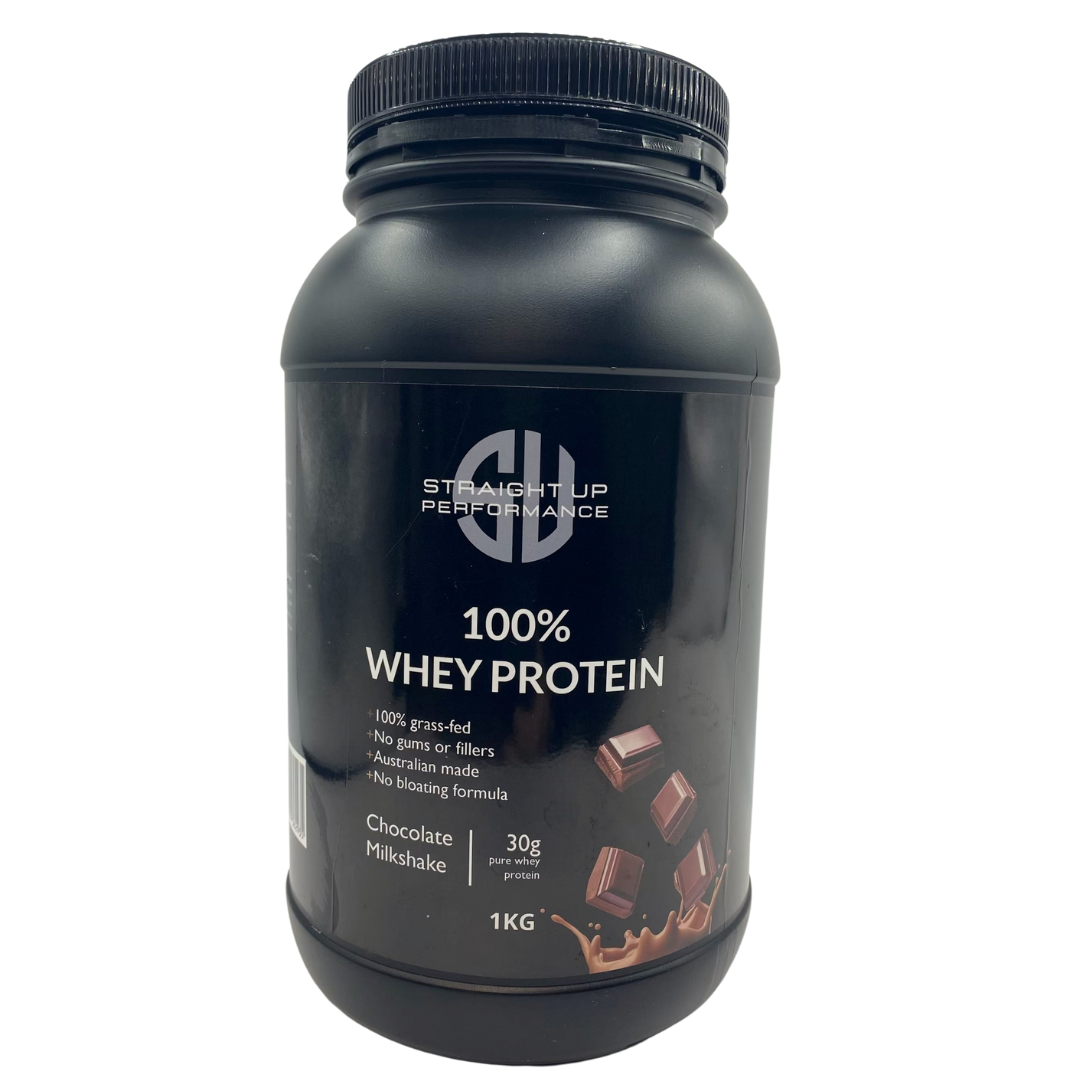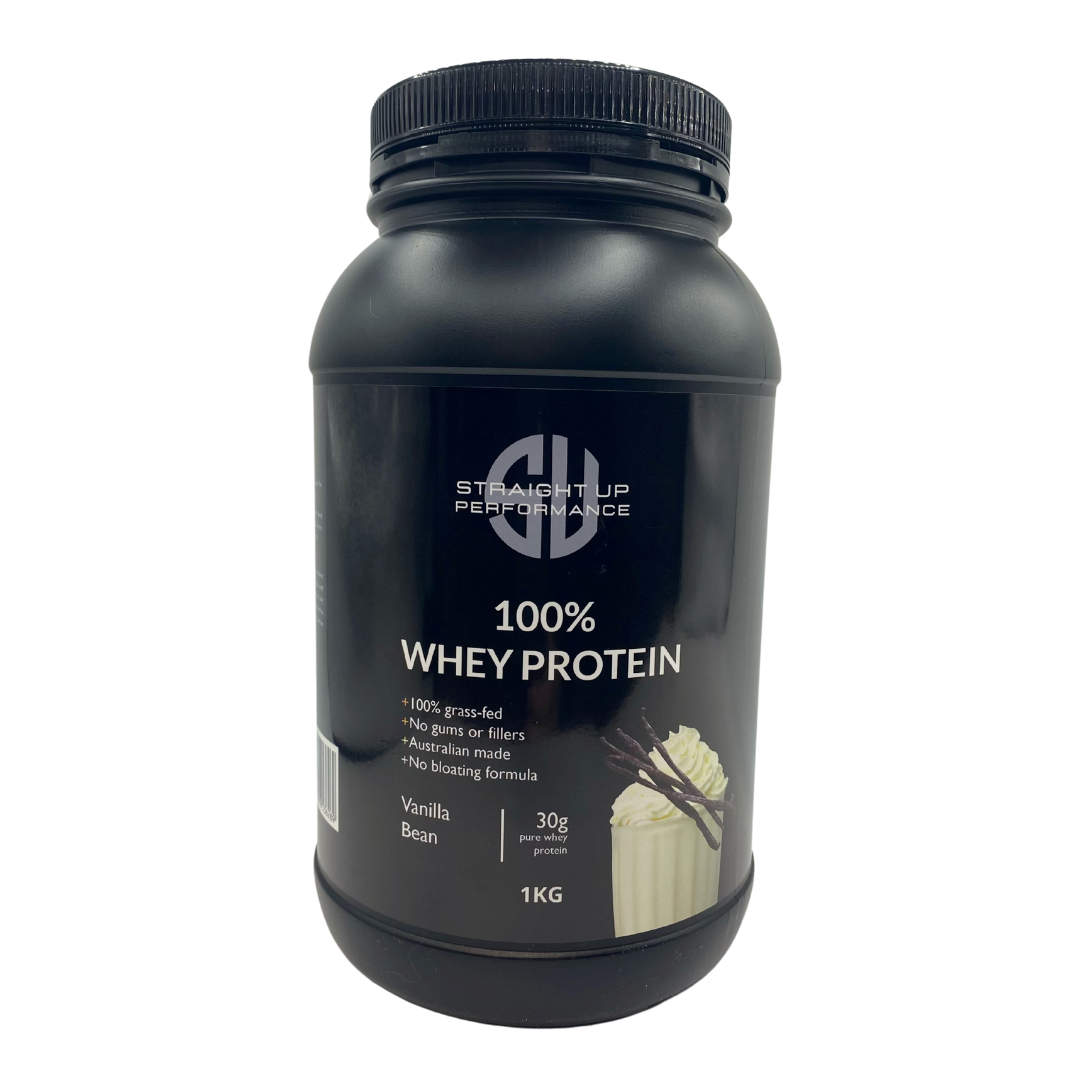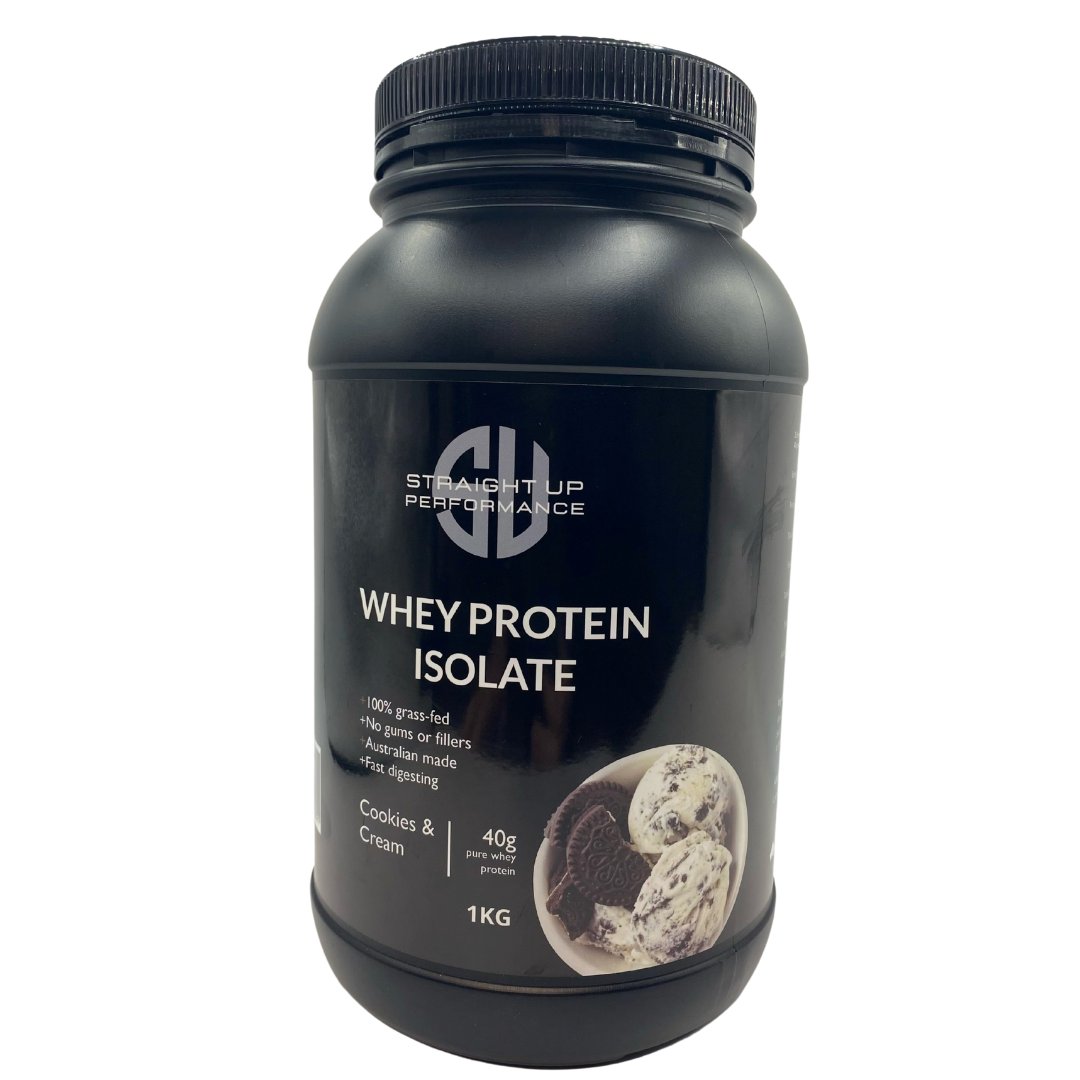"Does it really matter which protein powder I choose?"
The short answer? Absolutely. And it all comes down to one amino acid: leucine. It doesn't matter that your plant protein is a marketed as a "complete protein". It cannot match the leucine content of a whey protein, which is the main amino acid required for building muscle.
What Makes Leucine So Special?
Think of leucine as the ignition key for your muscle-building engine. While all amino acids are important, leucine possesses a superior effect on muscle protein synthesis compared to other amino acids. It's what we call the "trigger" amino acid—the one that signals your muscles to start the protein synthesis process that leads to growth and repair.
Research shows that 10 grams of essential amino acids (including approximately 1.8 grams of leucine) is sufficient to maximally stimulate muscle protein synthesis in young men and women. This threshold concept is crucial—you need to hit that leucine target to flip the muscle-building switch.
The Plant vs. Whey Leucine Reality Check
Plant-based protein supplements often contain lower amounts of leucine and other essential amino acids, making them less effective for muscle building compared to their animal-based counterparts.
But before the plant-protein crowd gets defensive, there's some excellent news from recent research. Studies show that consumption of plant-based protein isolate with added leucine stimulated muscle protein synthesis to a similar extent as whey protein in young men and women. The key phrase here? "With added leucine."
Whey protein is higher in essential amino acids, especially leucine, which is particularly important for muscle protein synthesis. It's also super easy to digest and absorb, making it the gold standard for post-workout nutrition.
Breaking Down the Numbers
Popular Australian whey options typically contain:
- WPI (Whey Protein Isolate): 2.5-2.8g leucine per 25g serve
- WPC (Whey Protein Concentrate): 2.2-2.5g leucine per 25g serve
Here's how the popular plant proteins stack up:
Soy Protein: The Plant-Based Winner Of the plant-based protein powders on offer, soy-based products contain the greatest amount of leucine, typically delivering around 1.8-2.0g per 25g serve. This makes soy the closest plant-based competitor to whey.
Pea Protein: The Popular Choice with a Caveat The primary disadvantage of using pea protein for muscle building is that it does not contain as much leucine or branched-chain amino acids (BCAAs) as whey, making it less effective at increasing muscle mass over time. Most pea proteins deliver around 1.6-1.8g leucine per 25g serve.
Rice, Hemp, and Other Plant Proteins: To match the leucine content of whey protein, plant-based proteins would need to be increased to 33g (potato), 37g (brown rice), 38g (pea), 40g (soy), 45g (wheat), 47g (oat), 48g (microalgae), 52g (lupin), and 54g (hemp).
That means if you're using hemp protein, you'd need more than double the serving size to get the same leucine hit as whey!
Suddenly, your plant proteins are becoming less and less natural and more and more artificial as additives are piled in to match the nutritional content of a whey protein.
But What if You're Lactose Intolerant?
Whey Protein Isolate is particularly low in lactose, and if that still upsets your tummy, then the next best thing is still a soy based protein.
Let me address some common misconceptions:
Myth: "All protein is the same" Reality: Leucine content varies dramatically between sources, directly impacting muscle-building potential.
Myth: "Plant protein is just as good as whey" Reality: Plant-based proteins containing higher leucine content promote anabolism to a similar extent as animal-based proteins—but only when leucine content is matched.
Myth: "More protein always equals better results" Reality: It's about hitting leucine thresholds, not just total protein numbers.
Making Smart Choices
Based on the research, here's my practical advice for maximising your muscle-building potential:
If You Choose Whey:
- Look for 25-30g serves to optimize muscle protein synthesis
- Consider timing: post-workout is ideal for rapid absorption
If You Choose Plant-Based:
- Prioritise soy or leucine-enriched blends
- Consider larger serving sizes (30-40g) to match whey's leucine content
- Look for products that specifically mention leucine fortification
- Combine different plant proteins throughout the day
The Hybrid Approach:
- Mix whey and plant proteins based on your goals and dietary preferences
- Use whey post-workout for maximum leucine impact
- Use plant proteins at other times for variety and additional nutrients









